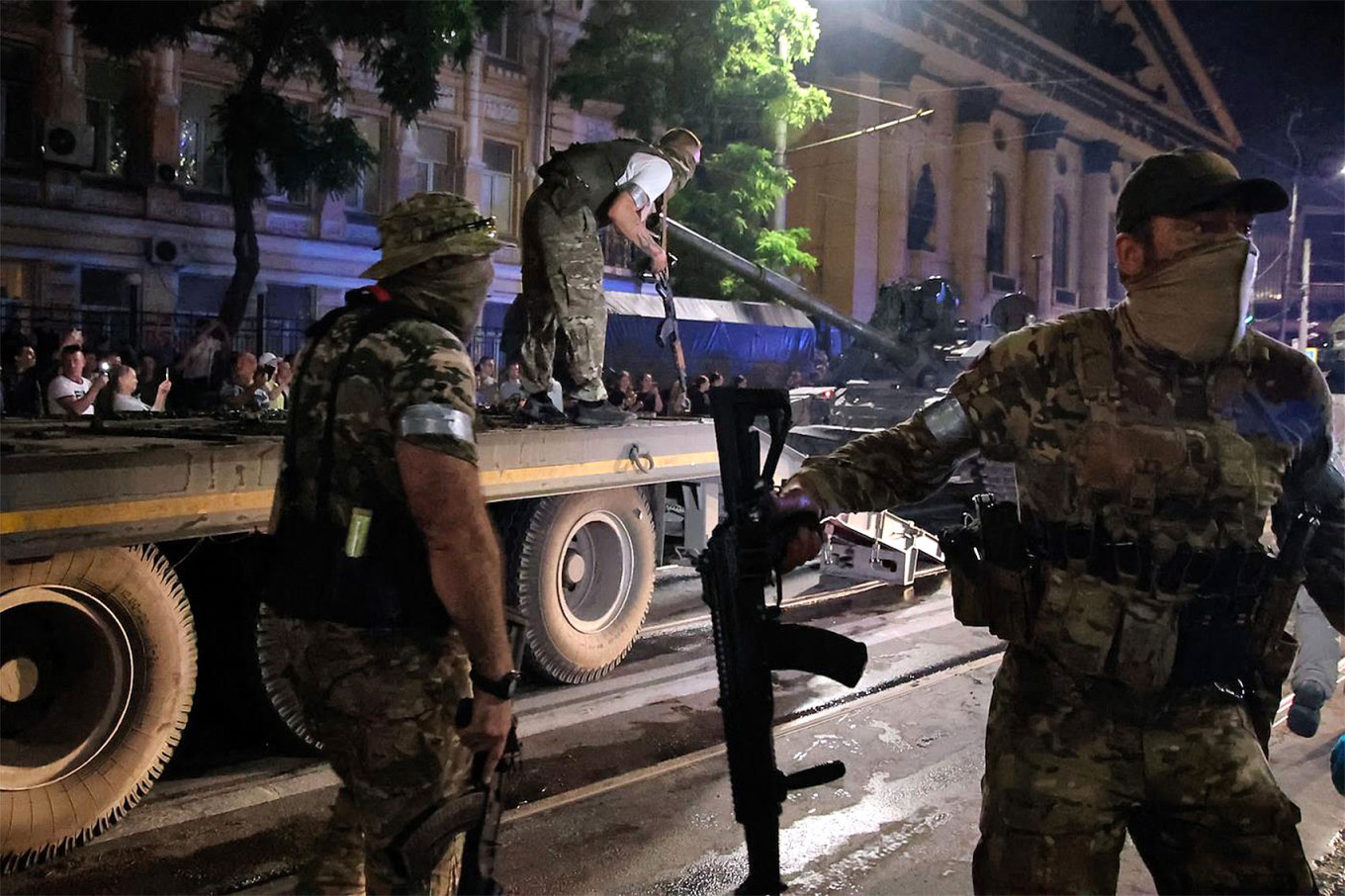The decision to keep Yevgeny Prigozhin’s funeral a secret was made by the Russian presidential administration and the security services, two acting Russian officials told The Moscow Times on condition of anonymity due to the sensitivity of the issue.
Even after his Aug. 23 death in a plane crash near President Vladimir Putin’s residence in Valdai, Prigozhin, the mercenary leader who launched an armed mutiny against Russia’s top military brass two months ago, remains a cause for concern in the Kremlin.
“The aim was to ensure that when the coffin with Prigozhin’s body was lowered into the grave, there were no mass gatherings of citizens, mercenaries and sympathizers around, as well as no broadcasts and photos on social media from the entrance to the cemetery,” the two Russian officials told The Moscow Times.
The funeral format was the subject of several consultations involving senior Kremlin officials and Federal Security Service (FSB) officers, the officials said.
These talks involved the Kremlin’s First Deputy Chief of Staff Sergei Kiriyenko, who oversees domestic policy, as the funeral was directly linked to the Russian president’s ratings and popularity. Officers from several intelligence agencies were also present.
The public response to Prigozhin, his rebellion and subsequent demise had deeply unsettled the Russian leadership.
During his June 24 mutiny, Prigozhin and his fighters were warmly welcomed by many Russians as they occupied Rostov-on-Don, while the army and special services did not put up significant resistance to the armed Wagner units approaching the capital — rattling the image of Putin’s unshakeable rule.
After his plane crashed last Wednesday, people laid flowers at spontaneous memorials in several cities across the country in remembrance of Prigozhin, a figure known for his populist “man of the people” image as much as his widely reported brutality.
“Prigozhin, with his demand for justice, sharp and often truthful statements, caused emotion among Russians and as a formal Hero of Russia, and as a ‘people’s hero.’ Do we need heroes who marched on Moscow? No,” a Russian government official told The Moscow Times of the logic behind the authorities’ behavior.

“There is not even a question of betrayal here, but a question of humiliation. I think the country’s leadership could not forgive him,” said another official, referring to Putin’s widely known view that personal betrayal is an unforgivable crime.
The Kremlin has called rumors of possible foul play in Prigozhin’s death an “absolute lie.”
At the meetings with Kremlin and security officials, a plan was approved for Prigozhin’s funeral to take place with a minimal likelihood of public outcry or protest.
The special services were tasked with ensuring that the funeral was held under a “smokescreen,” conducting an operation to mislead the public and the media about the site of the burial.
On the day of the funeral, news reports and social media channels claimed preparations for the ceremony were underway in several cemeteries in St. Petersburg and even one in the Moscow region.
His real place of burial, St. Petersburg’s Porokhovskoe cemetery, was not mentioned in any of these reports, and was only revealed by Prigozhin’s press service after the funeral was over.
Even after the ceremony ended, dozens of police officers guarded the approach to the burial site. A New York Times journalist reported witnessing an explosives squad inspecting the grave site.
When access to the site was finally granted on Wednesday morning, cars lined up in a 2-kilometer-long traffic jam at the cemetery entrance, local news outlet Fontanka reported.
During his lifetime, Putin personally bestowed Prigozhin with the Hero of Russia title, a status that implies a lavish funeral ceremony including an honorary escort, guard of honor, state flag, military orchestra and artillery salute.
At Prigozhin’s memorial ceremony, none of this happened.
The modest ceremony lasted about 40 minutes and was attended by 20-30 people, mostly Prigozhin’s relatives and close friends, the independent publication Agentstvo reported. This was ostensibly done to ensure maximum control and prevent any disruptions.
The Kremlin officials were tasked with silencing media coverage of the ceremony and minimizing the public’s reaction, the officials who spoke to The Moscow Times said.
Independent Russian news outlets noted that information about Prigozhin’s funeral as well as the crash itself were virtually ignored by Russian state television.
Even after the coffin with Prigozhin’s body was laid in the ground and everything was over, state broadcasters paid little attention to the event in their primetime evening newscasts. Only one of the three main television channels allocated a brief one-minute slot to mention the Wagner leader’s funeral.
Independent political expert Tatyana Stanovaya called Prigozhin’s funeral “the culmination of a covert operation aimed at his elimination.”
“Conducted under the strict oversight of the security agencies, the entire process was shrouded in secrecy and involved deceptive tactics,” Stanovaya said.
A Russian businessman personally acquainted with Prigozhin said that the Russian leadership saw no reason to grant him a hero’s burial.
“They decided that there was no need to promote him again, and that there was no need for any pandemonium,” the businessman told The Moscow Times. “Why do they need such martyrs? Why create a problem for themselves?”